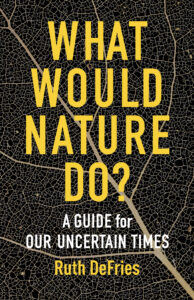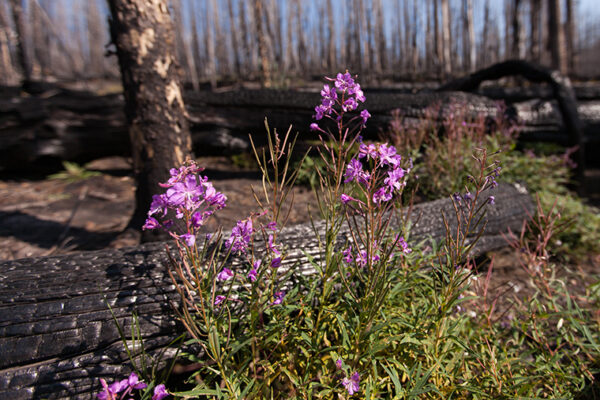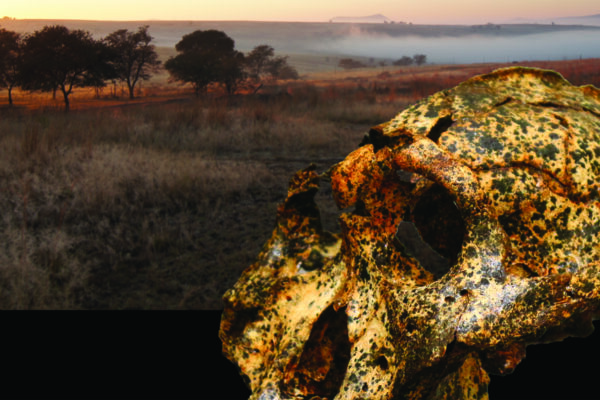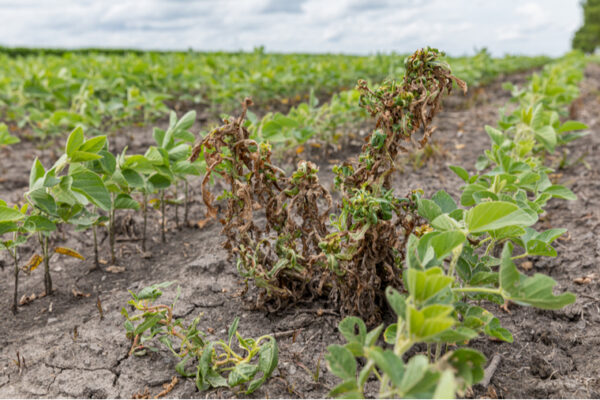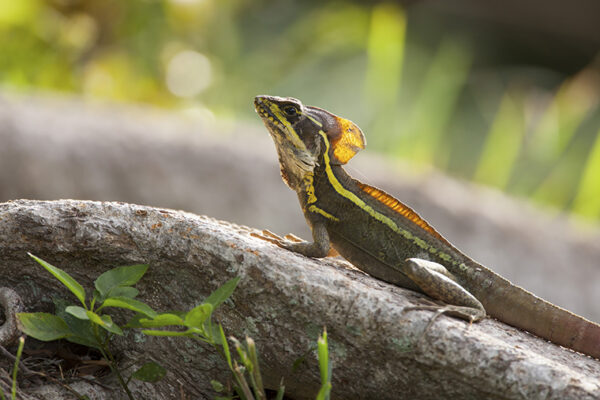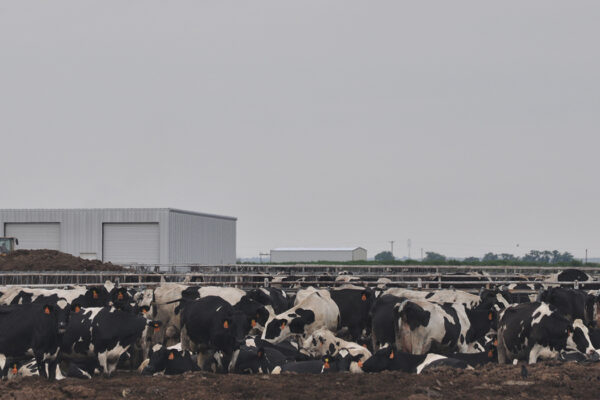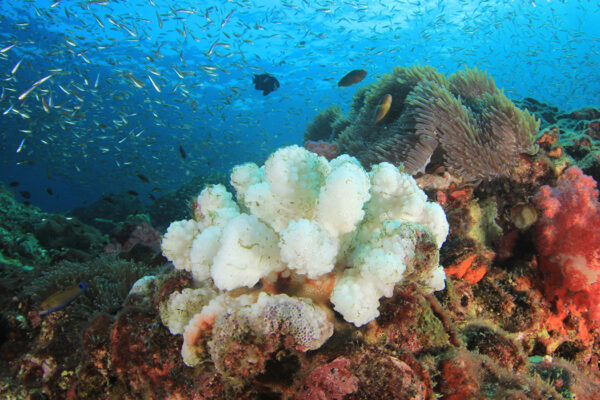Biden energy plan is aggressive, but much can be done
Geophysicist Michael Wysession, professor of earth and planetary sciences in Arts & Sciences at Washington University in St. Louis, teaches a popular undergraduate course called “Energy and the Environment.” He breaks down President-elect Joe Biden’s 9-point Energy Plan, point-by-point.
What Would Nature Do?
A Guide for Our Uncertain Times
Exploring the lessons that life on Earth can teach us about coping with complexity, What Would Nature Do? offers timely options for civilization to reorganize for a safe and prosperous future.
In fire-prone West, plants need their pollinators — and vice versa
A new study from the northern Rockies explores the role of fire in the finely tuned dance between plants and their pollinators. The research from biologists including Jonathan Myers in Arts & Sciences at Washington University in St. Louis is published Nov. 25 in the Journal of Ecology.
How a human cousin adapted to a changing climate
A fossil discovery in South Africa suggests that P. robustus evolved rapidly during a turbulent period of local climate change about 2 million years ago, resulting in anatomical changes that previously were attributed to sex. An international research team including anthropologists at Washington University in St. Louis reported their discovery in Nature Ecology & Evolution on Nov. 9.
Hydrogen bonds may be key to airborne dicamba
Research from the lab of Kimberly Parker in the McKelvey School of Engineering at Washington University in St. Louis has discovered the mechanism that keeps formulations of the herbicide dicamba from going airborne. And they consider why it sometimes fails.
What cold lizards in Miami can tell us about climate change resilience
Scaled survivors of the coldest night in south Florida’s recent history all converged on the same new, lower limit of thermal tolerance, regardless of their species’ previous ability to withstand cold. Biologist James Stroud in Arts & Sciences at Washington University in St. Louis led the team that reported the findings in the journal Biology Letters.
WashU Expert: Forget plexiglass, debaters just need 4.5 feet, smart airflow
Four and a half feet — as long as debaters are at least this far apart, with airflow directed back at them, the risk of infection with SARS-CoV-2 is minimal to none, say researchers at Washington University in St. Louis.
Sicker livestock may increase climate woes
Climate change is affecting the spread and severity of infectious diseases around the world — and infectious diseases may in turn be contributing to climate change, according to new research from Washington University’s Living Earth Collaborative working group led by biologist Amanda Koltz in Arts & Sciences.
Teaching high school chemistry with real-world examples
Michael Wysession, professor in earth and planetary sciences, and Bryn Lutes, a lecturer in chemistry, both in Arts & Sciences at Washington University in St. Louis, believe that high school students will learn chemistry better when they crunch actual climate data, rather than memorize the periodic table by rote. They helped write a national chemistry curriculum that is loaded with real-world examples — like ocean acidification — and is already being rolled out by school districts in Los Angeles and other parts of California.
Funding climate action policies: Consumers weigh in
A new study involving Washington University in St. Louis researchers finds consumers across the United States and in some European countries are ready to start paying for climate action now.
Older Stories

